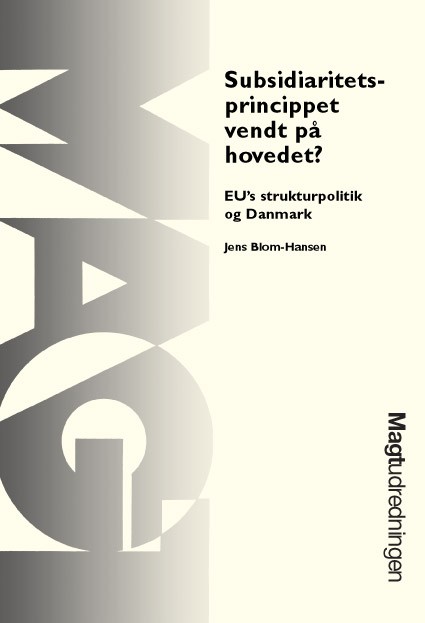The principle of subsidiarity implies a clear division of tasks between the EU and the member states: The EU is responsible for transnational functions while national tasks are left in the hands of the member states. Denmark is a solid supporter of the principle of subsidiarity. In the public debate this principle has gained a status as a guarantee that the EU does not interfere in national affairs.
However, the remarkable growth in the EU structural funds during the 1990s has been a challenge for the principle of subsidiarity. The structural funds which today eat up a third of the EU budget support tasks that are also regulated by the member states own national policies. The book focuses on Denmark and shows that the EU through its structural policy is engaged in affairs that are traditionally considered purely national or even local in Denmark. Examples are regional industrial development, unemployment policy and urban policy. Therefore, EU structural policy leads to a muddling of functions across level in the EU. This is exactly the situation the principle of subsidiarity seeks to avoid.
